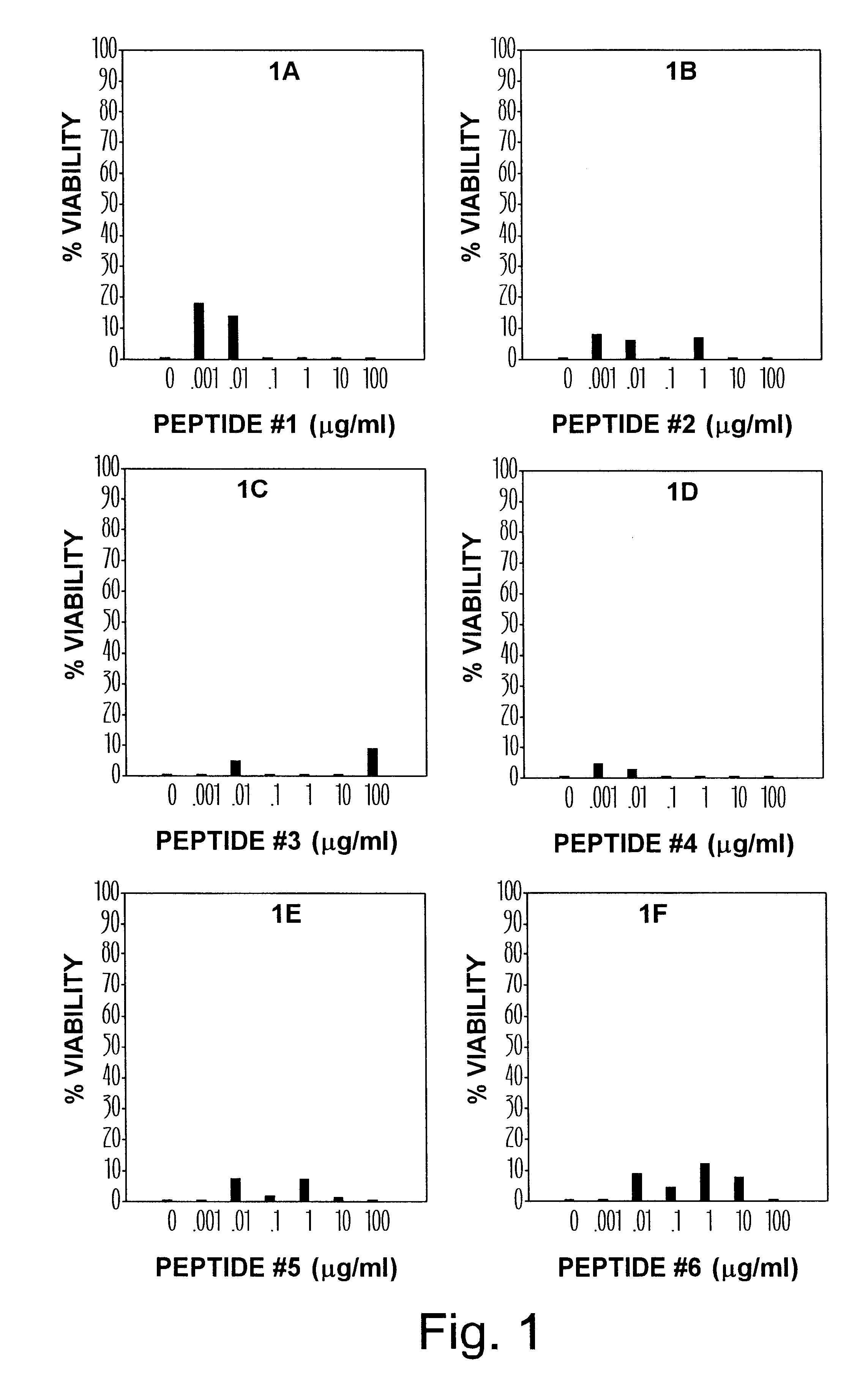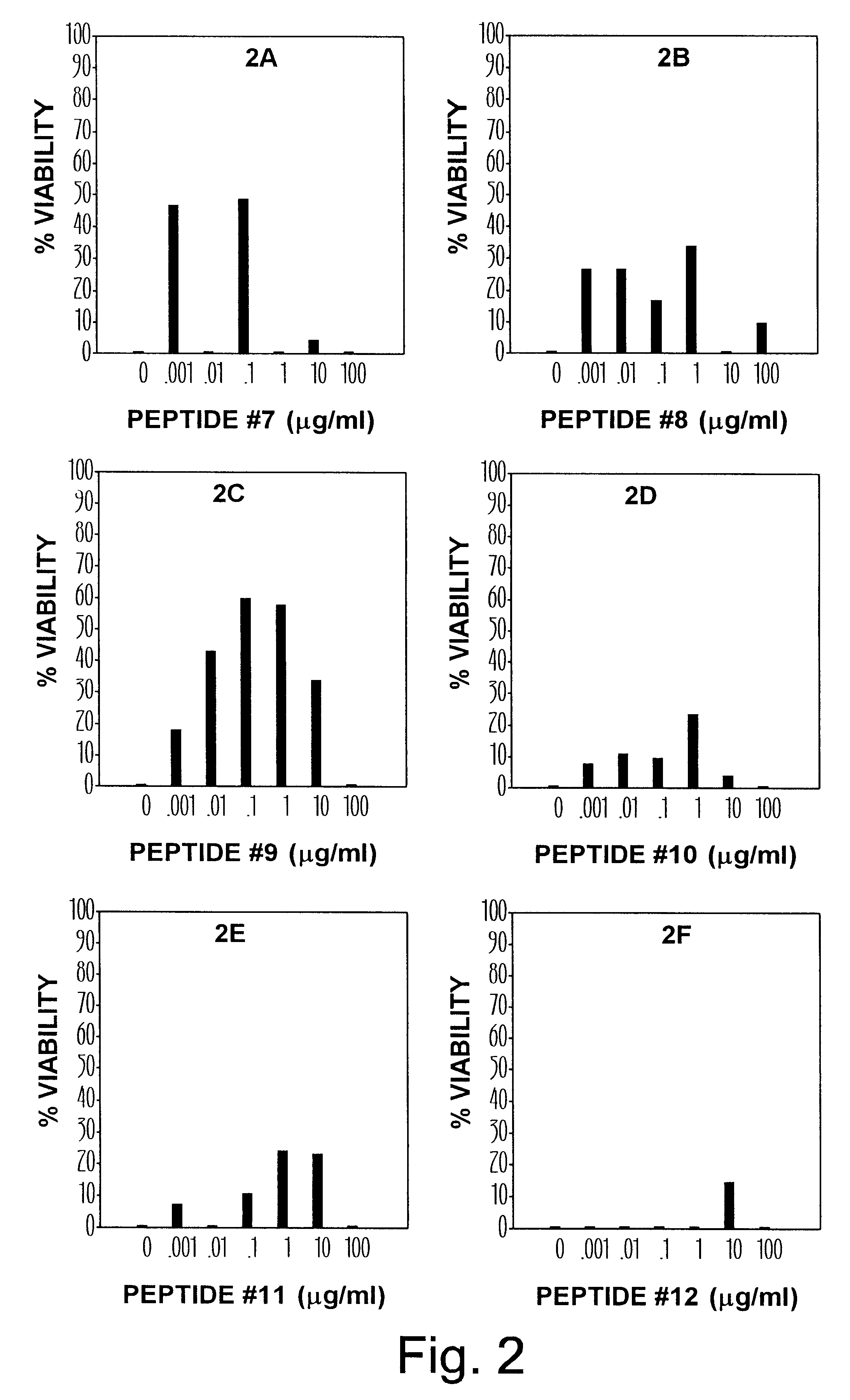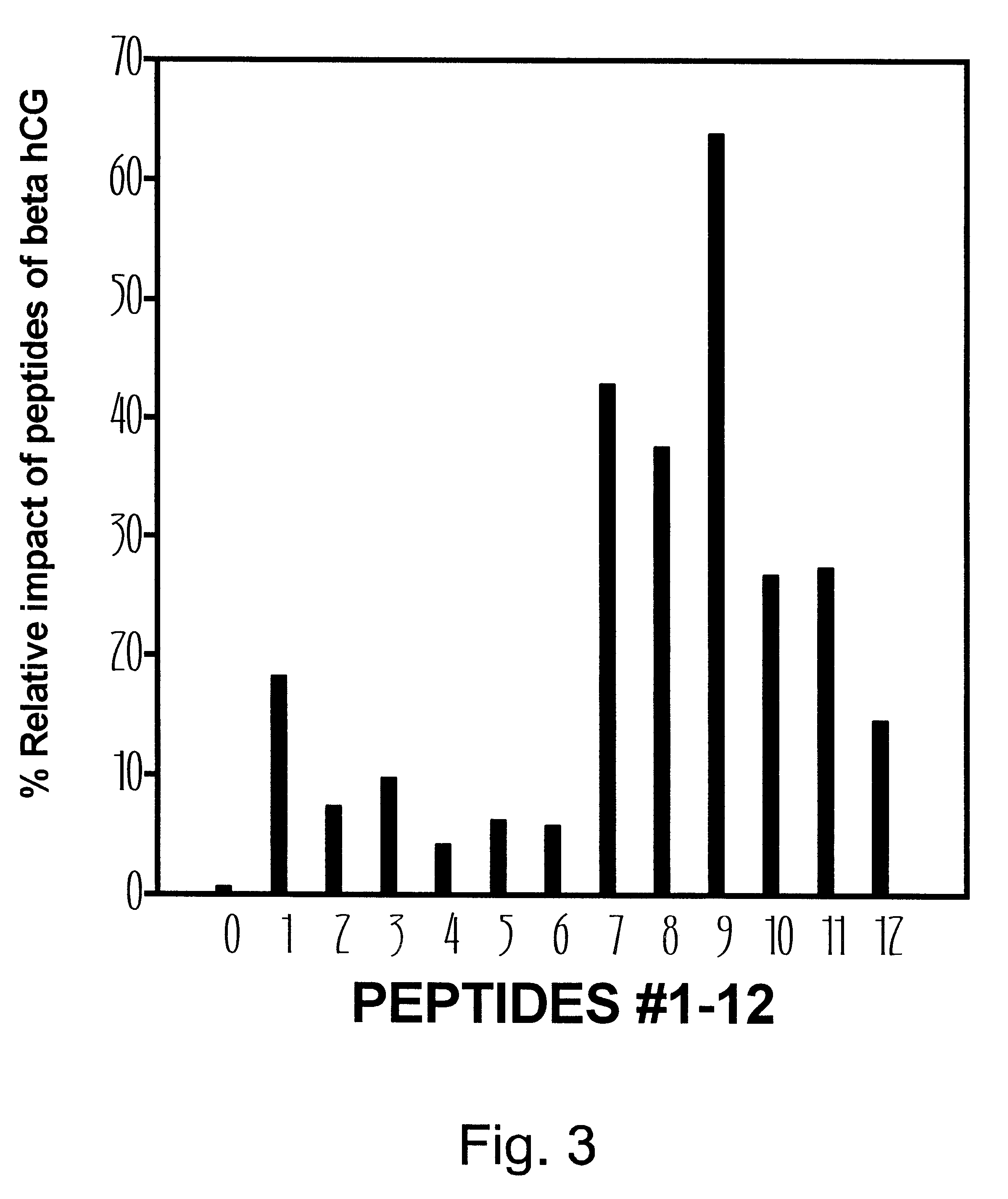Method for treating AIDS and HIV infection using select peptides from the beta subunit of human chorionic gonadotropin
- Summary
- Abstract
- Description
- Claims
- Application Information
AI Technical Summary
Benefits of technology
Problems solved by technology
Method used
Image
Examples
example 2
The serial ten-fold dilutions (100 mcg-1 ng per ml) of 6 different synthetic peptides representing N-terminal and core region of hCG were tested for their effect on HIV replication (FIG. 1). Judging from the observation under the microscope, the presence of some beta hCG peptides seemed to protect MT-4 T lymphocytes from HIV-caused cytopathic effect, i.e., syncytia formation and cell death. The viability of cells appeared to be dependent on the concentration of the peptide and was, accordingly, measured by XTT assay. The experimental OD values obtained from three independent experiments were converted to percentile scores and means corresponding to each serial dilution of the peptide are shown as bars on a 100% scale. In these experiments the viability of MT4 was determined after 5-7 days of continuous presence of the virus and hCG peptide fragment in the target cell culture.
The anti-HIV effect of the first 6 peptides that span the N-terminal and core portion of hCG molecule are sho...
example 3
The synthesis of peptides used in this example and determination of anti-HIV effect were carried out as described in Example 1. The panel consisting of six graphs in FIG. 2 displays the effect of synthetic peptides that encompass predominantly the COOH-terminal portion of beta hCG. The anti-HIV effect was observed with peptides starting from the position 100 and ending at the position 145 which represents the COOH-terminal portion of beta hCG. Short peptides containing 10-15 amino acids (e.g., #7, #8, #10) within this region were active but the most striking effect was observed with the peptide #9 (106-145) containing 40 amino acid residues of the CTP. The dose response curve for this peptide is bell-shaped and resembles the effect of the beta subunit reported earlier. The most potent concentration of this peptide is equal to 100 ng / ml--the dose at which 63% of MT-4 cells were able to survive after 6 days of exposure to HIV.
example 4
The synthesis of peptides used in this example and determination of anti-HIV effect were carried out as described in Example 1. The results of these experiments are shown in FIG. 2. The two peptides, #11 (viz. 111-145P.sub.6 -C) and #12 (111-148), are modified fragments with altered and / or additional amino acids that are not present in the native subunit. The peptide #12 containing the incorrect amino acid sequence of beta hCG-CT bad no significant effect. The modified CT fragment #11 (111-145P.sub.6 -C) with seven additional amino acid residues at the C-terminal end displayed a diminished activity with the peak corresponding to the higher end of dose range. None of the tested peptides were toxic to MT-4 cells at the concentration range used in these experiments.
PUM
| Property | Measurement | Unit |
|---|---|---|
| Mass | aaaaa | aaaaa |
Abstract
Description
Claims
Application Information
 Login to View More
Login to View More - R&D
- Intellectual Property
- Life Sciences
- Materials
- Tech Scout
- Unparalleled Data Quality
- Higher Quality Content
- 60% Fewer Hallucinations
Browse by: Latest US Patents, China's latest patents, Technical Efficacy Thesaurus, Application Domain, Technology Topic, Popular Technical Reports.
© 2025 PatSnap. All rights reserved.Legal|Privacy policy|Modern Slavery Act Transparency Statement|Sitemap|About US| Contact US: help@patsnap.com



